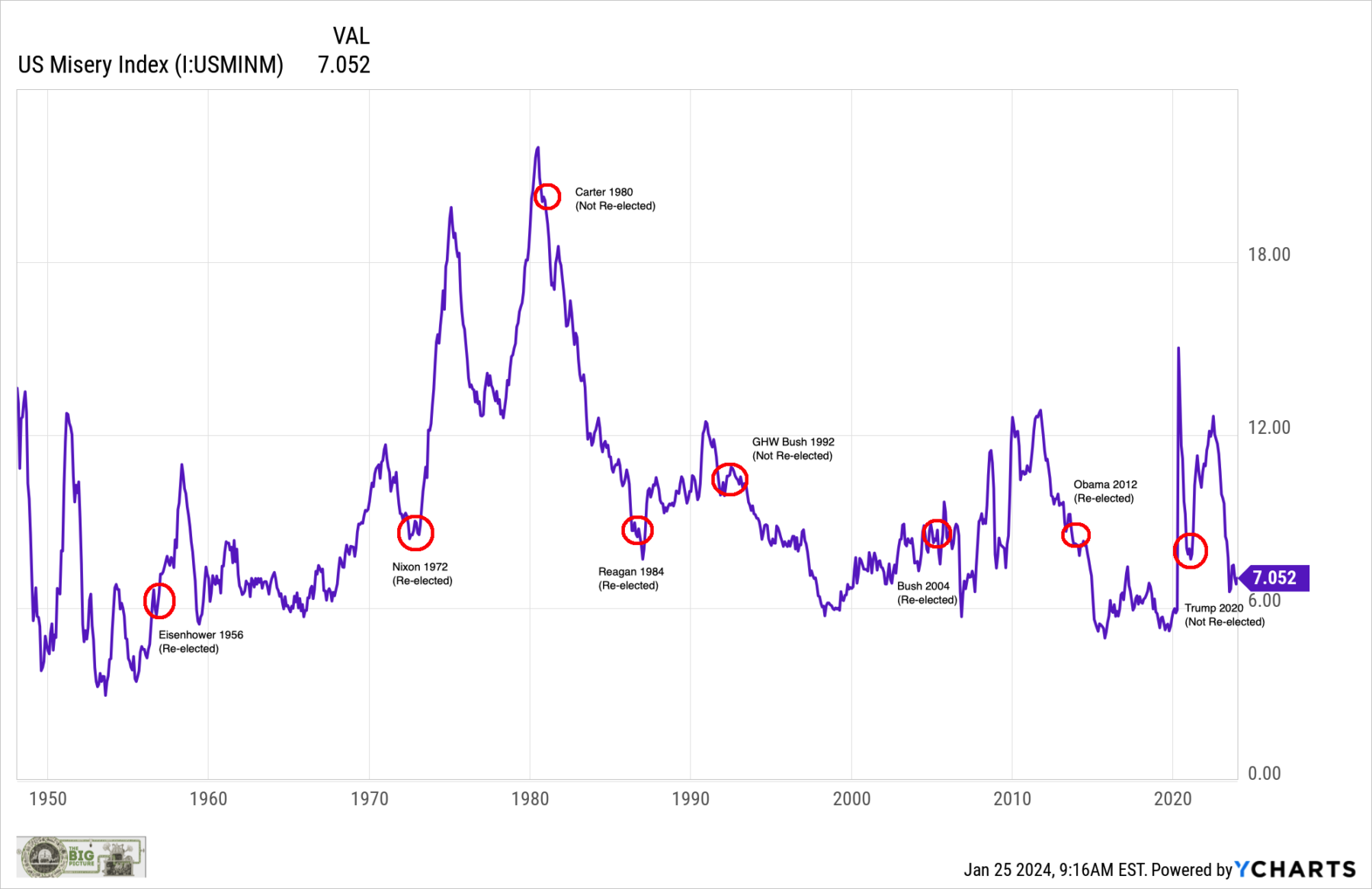The endless media Sturm und drang over the 2024 election silly season has led me to share a few thoughts and a chart.
I don’t pretend to be a political analyst; professionally, I am more interested in the potential impact elections have on policies and the economy. However, I find it worthwhile recalling a few truisms:
1. Except in times of war, people tend to vote their pocketbooks;
2. There are many ways to measure economic sentiment, but quantitative metrics are superior to flawed surveys and polls.
3. The Misery Index is better than most ways to track sentiment; when it is very high, it bodes poorly for incumbents;
4. Regardless, Investors should never let their politics – personal, messy, and irrational – affect their portfolios.
We can debate 1000 different data points, but let’s take a look at the history of the Misery Index. Created in the 1970s by economist Arthur Okun, it simply adds the Unemployment Rate (U3) with Inflation (CPI) to give us a snapshot of how much economic distress is being felt in the country.
The chart above shows that economic distress is an important factor in presidential elections, but clearly, it is not the only factor. Of the three most recent incumbents who did not get re-elected, the Misery Index was only the prime factor in one of those elections: In 1980, Jimmy Carter lost to a more charismatic Ronald Reagan while inflation and unemployment were both very high.1
In 1992, with inflation subdued and unemployment modest, George H.W. Bush lost to Bill Clinton in a 3-way race.2 And in 2020, coming off an era of flat inflation but with a huge surge in unemployment in the midst of a (mishandled) Covid crisis, Donald Trump lost by 4.5% and over 7 million votes.
The takeaway: The misery index track record predicting presidential elections is mixed: When the index is high, it bodes poorly for the incumbent; when the index is low, other factors like 3rd party candidates (Bush 1992), or pandemics (Trump 2020) can be more important to voters.
Like all sentiment indicators, the misery index tends to operate on a long lag, so even when it improves, it takes a while to show up in consumer sentiment and political polls.
Previously:
Is Partisanship Driving Consumer Sentiment? (August 9, 2022)
Unconventional Wisdom (November 9, 2022)
Nobody Knows Anything, 2023 Polling Edition (November 8, 2023)
Who Is to Blame for Inflation, 1-15 (June 28, 2022)
Why politics and investing don’t mix (February 6, 2011)
__________
1: The Iranian Hostage crisis did not help Carter either
2. It has been argued that the presence of Ross Perot in the race did not hurt Bush, but I continue to be skeptical about that thesis. A strong 3rd party candidate could theoretically split the anti-incumbent vote, but it seemed to me at the time to have pulled just enough support away from Bush I to swing the election to Clinton.



